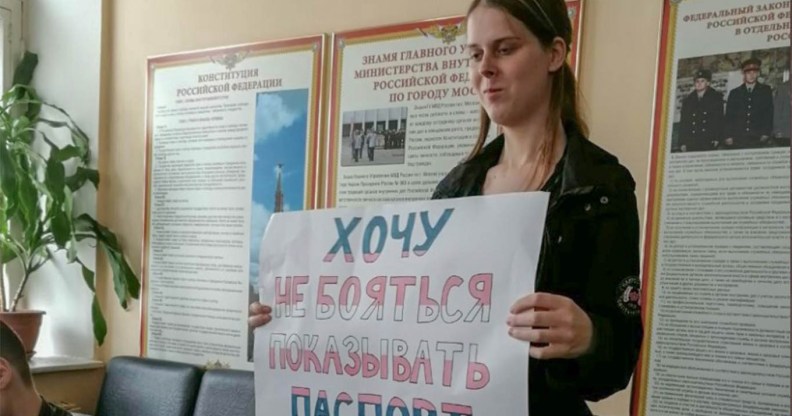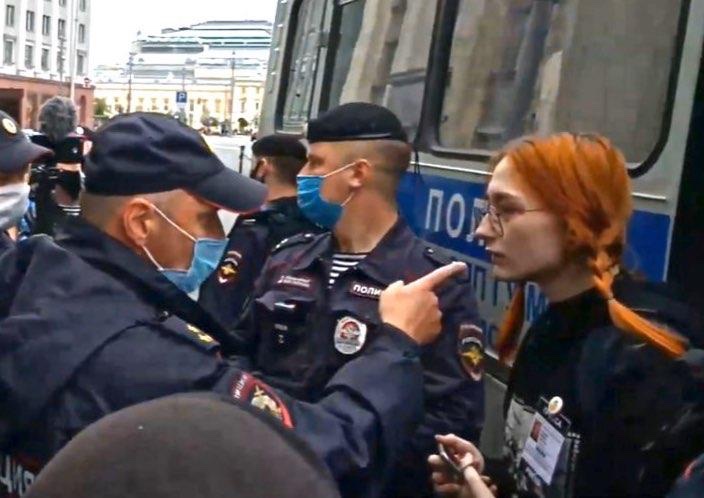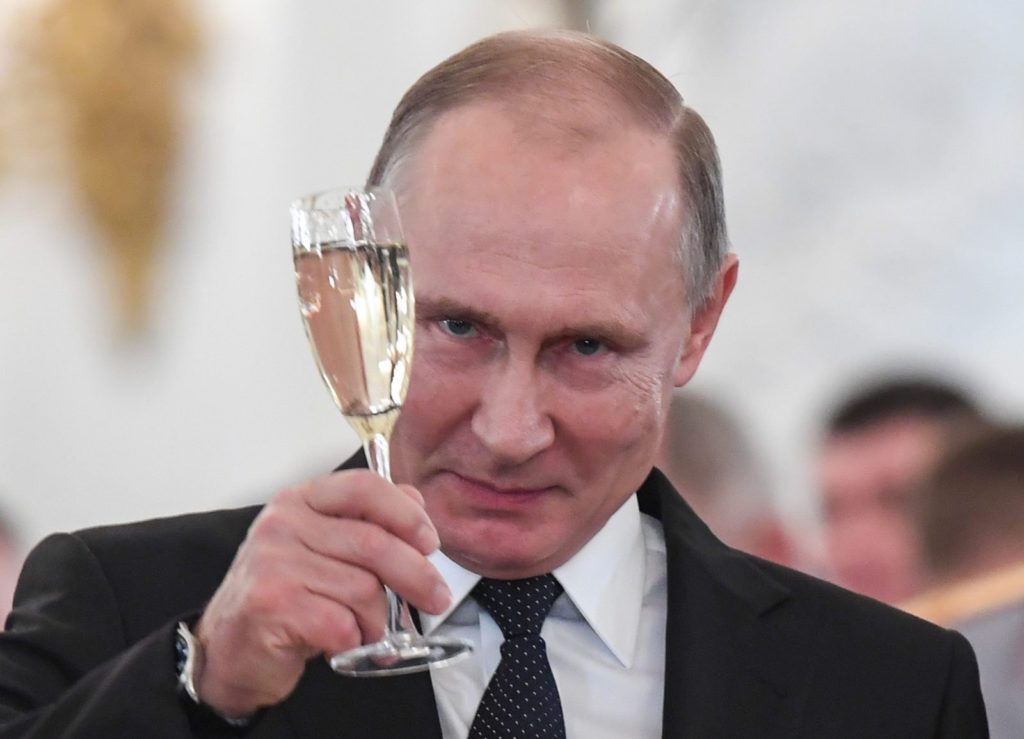Russian trans woman who picketed against Vladimir Putin’s vile rollback of LGBT+ rights ‘faces rape’ in male prison

Polina Simonenko, a trans activist who took part in a series of single-person protests that dotted Moscow, Russia. (Vkontakte)
A Russian trans woman is being sent to a men’s prison for protesting a series of anti-LGBT+ constitutional changes, and activists are fearful that she may be abused or even raped.
Polina Simonenko was found guilty by a top Moscow court for repeated violations of protest rules after demonstrating against changes that will see Vladimir Putin effectively erase trans people and eradicate any chance of marriage equality being achieved.
As a result, activists said Monday (20 July), she will be sentenced to 14 days in a men’s special detention facility.
LGBT+ rights group Grazhdanskoye Obshchestvo expressed fears that Simonenko will be subjected to lewd remarks from male prison officers as well as threats of rape from inmates, a cruel and humiliating result of Russia’s incarceration system that offers little protection for or consideration of trans inmates.
“There could be rape,” the group said on its Telegram, according to The Moscow Times. “It’s disgusting.”
Last Saturday (18 July), hundreds of demonstrators poured onto the streets of Moscow in an open challenge against Putin’s volley of constitutional changes, many of which LGBT+ activists fear will strip the county’s already flimsy queer rights back even further.
Many involved the scattered protest stood on street corners and even outside police stations, photographs and videos taken on the ground showed.
Russian police reportedly spied on trans activist while she used a station bathroom.
Simonenko and Mila Zemtsova were two of more than 30 people arrested, with police officers reportedly refusing to give reasons for the arrests.
Many arrested protesters were later charged with “violation of the rules of participation in a public event” and subsequently released.
However, Simonenko and Zemtsova were both detained. During detention, Freedom News reported, the two were brutally tortured.

Trans rights activist and ally Mila Zemtsova clashed with Russian police. (Twitter)
Officers did not allow Zemtsova to use the restroom and was later beaten by cops after she refused to enter the courtroom, they said.
Simonenko was reportedly beaten by officers and was even spied upon when using the restroom.
Zemtsova was ordered by judges at the Tverskoy District Court to pay a fine of ₽20,000.
Putin and his cronies are moving to roll back even further LGBT+ rights in Russia.
In a package of hot button pledges made in the run-up to the referendum, Putin said he would overhaul the country’s constitution to define marriage as between a man and a woman.
Same-sex marriage is already banned, meaning a constitutional re-write will only make a pathway to LGBT+ equality even dimmer for Russian activists.
The marriage law was announced by conservative lawmaker Elena Mizulina — the architect of the country’s anti-LGBT+ propaganda law. She described the bill, which will tweak Russia’s Family Code, as being “aimed at strengthening the institution of the family”.

A slew of constitutional amendments has banned same-sex marriage in Russia and granted Putin power until 2036 (Getty)
Trans rights will be further eroded in the slew of changes. It will be virtually impossible for trans Russians to marry, adopt children or change the gender markers on their identification documents, effectively preventing any trans people from legally changing their gender.
Russia voted to amend the constitution in a referendum, the results of which were announced before polls had even closed, so one-sided was the result. The ultimate prize for Putin was a change allowing him to rule until at least 2036.
Putin crowbarring the constitution was, political analysts said, a tacit way to rally interest in a public referendum on his rule.
Although some commentators stress that the vote was vastly symbolic, considering that Putin has already netted the necessary approval from parliament, regional governments and the courts.
In fact, not only had the constitutional amendments already been enacted, the newly-amended constitution had actually been printed and sent to bookstores for sale — before the vote even happened.

